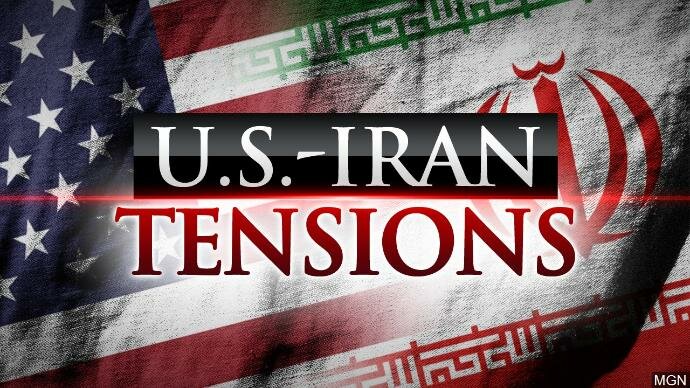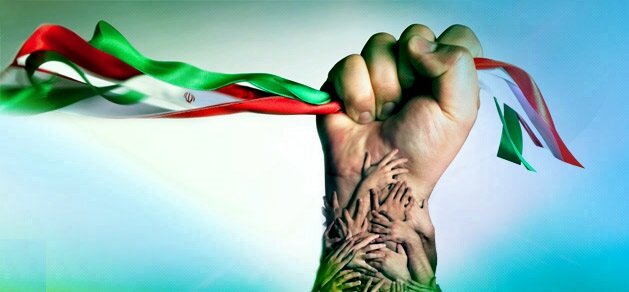TEHRAN - President Donald Trump claims the vast Military Industrial Complex, otherwise known as the MIC, which has become everything Eisenhower in 1960 warned against, is somehow “pressuring” him in to war on Iran.
One would imagine, however, that it’s not so much the MIC (or the Pentagon per se), but rather malign if not psychopathic individuals in the administration like Mike Pompeo and John Bolton who have had the President’s ear for the past year who began with urging Trump to can the JCPOA and reimpose economic sanctions on the Islamic Republic, along with the Zionists who have been trying to drum up a U.S.-led war on Iran for decades.
Additionally, there are figures like Patrick Shanahan, the acting “defense” secretary, who knows next to nothing about the military but quite a bit about corporations like Boeing which are part of the corporate gravy train standing to profit from military action anywhere. And even Bolton is apparently working out of the Pentagon mostly, not the White House, as National Security Advisor to Trump.
The provocations against Iran have become increasingly intense, and already there have been alleged attacks on an Aramco facility in Arabia and some damage to three ships in the Persian Gulf – attacks blamed on Iran. But even a moron knows, given history since the Vietnam War, that these are false flag ventures. The mere thought Iran, at this point, would be inviting U.S. military action has to be entirely unbelievable.
Iran is postulating some kind of non-aggression pact between countries on the Persian Gulf, and Iran’s leadership has stated clearly that it does not want further hostilities with the U.S. And more importantly, on national television in the U.S., Trump has also stated he does not want to fight Iran, at least militarily. He seems largely opposed to stupid wars, including the war on Iraq in 2003 – perhaps the greatest single mistake since the Vietnam War in the 1960s.
But Trump is not all that attentive as any kind of chief executive and he has Bolton and others around who seems to exist for nothing but war, and to them it may not even matter where war may be – just that the U.S. is throwing its military power around and trying to prove forevermore that the U.S. is THE hegemon and intends to remain so.
It really is a terrible situation for Trump, because if he wants to avoid igniting another war in the Mideast, he almost MUST fire both Pompeo and Bolton and this just for starters. And this was or is a real estate tycoon, and not a very good one with a trail of bankruptcies, who was alleged to be completely surprised that he won the 2016 election and may have not wanted the Presidency all that much given his lifelong primary interests around the accumulation of lucre and female “conquests” in or outside of marriage.
The fact is that if the U.S. bombs Iran, it won’t “work” if the expectation is that Iran is suddenly going to do whatever the warmongers want. Iran, it appears, is going to be well prepared and focused in retaliation, and will prove it if necessary. What then? A U.S. invasion of Iran? The U.S. public, one can be certain, won’t have it, nor will most of the rest of the world.
The U.S. will NOT be able to muster, as it did almost 20 years ago with Iraq, any kind of remotely credible coalition, although its likely that the Saudis and the Zionists will be involved. An invasion of Iran, smart observers have noted, will end the U.S. role in future in the Middle East, and may even finish off the U.S. globally and destroy the so-called “empire” the U.S. has stitched together since World War 2. And one must not downplay Russian and Chinese pledges NOT to permit Iran to be destroyed.
On this latter possibility, that the U.S. could wreck itself, and on this alone, one has to wonder that some of Iran’s hardliners may not be entirely averse to a military tangle with the U.S., although they won’t likely do anything to provoke it directly, unless one imagines that defensive preparation is provocation. Indeed, it’s not difficult to put forward the notion that after almost 70 years of U.S. meddling or hostility to Iran, some Iranians might be willing to serve a sacrificial role to get the U.S. off Iran’s back once and for all time.
During the revolution in Iran 40 years ago, angry Iranians erected a poster in Tehran directed at the U.S. that read in English: “Vietnam wounded you; Iran will bury you!” Of course the warning was hyperbolic. Justifiably angry people anywhere tend to hyperbole. But consider:
A wise mother once told her several children: “If you catch a bird in your hands and grip it too hard to keep it (as the U.S. is trying to hold on to its worldwide hegemony), you will kill it. But if you let it fly free, it will probably fly back to your hands.” So now we see the U.S. doing everything possible (desperately) to maintain the economic and military disparities between itself and other nations.
This is the primary objective behind American-instigated trade wars, economic sanctions and military threats wherever they have occurred. But screwing other nations is not a productive game longer term, and most of the world understands this. The best hope is that the people who make decisions in Washington wise up. Meanwhile, let’s also hope Iran’s proposed non-aggression pact with its neighbors bears fruit.











